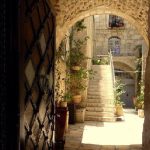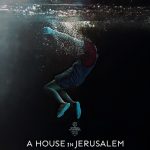'Cotton Queen' won the ArteKino Award at the Cannes Film Festival’s L’Atelier last year.
Suzannah Mirghani’s debut feature project Cotton Queen has been selected to receive funding from the International Film Festival Rotterdam as part of the HBF+Europe: Minority Co-Production Support Programme.
Hubert Bals Fund has selected four projects for its first-ever HBF+ Europe: Post-production Scheme, alongside eight projects for minority co-production support.
The Hubert Bals Fund of the International Film Festival Rotterdam is a curatorial fund dedicated to supporting filmmakers in every stage of the filmmaking process – from script development to post-production.
The HBF focuses on supporting filmmakers from Africa, Asia, Latin America, the Middle East and parts of Eastern Europe. Oftentimes, HBF-supported films premiere at major film festivals, reaching wide audiences and finding significant critical success.
The projects, all feature debuts aside from one, will receive €60,000 to support either their production or their post-production.
In 2022, Cotton Queen took part in the Cairo International Film Festival’s Cairo Film Connection.
Set in a cotton-farming village in Sudan, Cotton Queen — which won the ArteKino Award at the Cannes Film Festival’s L’Atelier last year — follows a teenage girl as she begins to question cultural expectations and the collapsing cotton industry, under threat from both insect and human pests.
In a cotton-farming village in Sudan, 15-year-old Nafisa lives a simple life, picking cotton with her friends, falling in love with a village boy, and learning from her grandmother Al-Sit, the formidable village matriarch and matchmaker.
The arrival of Nadir, a young Sudanese businessman from abroad, threatens to change their way of life with a new farming technology. Nafisa’s parents are excited to arrange her marriage to Nadir, but Al-Sit has the final decision about Nafisa’s future, including when to be circumcised and who to marry. Torn between the demands of her family and her emerging desire for independence, Nafisa is forced to negotiate between modernity and tradition in a defiant drive for personal choice. Neither she nor her village will ever be the same again.
Suzannah Mirghani is a Sudanese-Russian writer, researcher, and independent filmmaker with a special interest in highlighting stories from the Arab world. Being of multicultural Sudanese and Russian backgrounds, Suzannah is interested in stories that examine the complexity of identity.
















































































